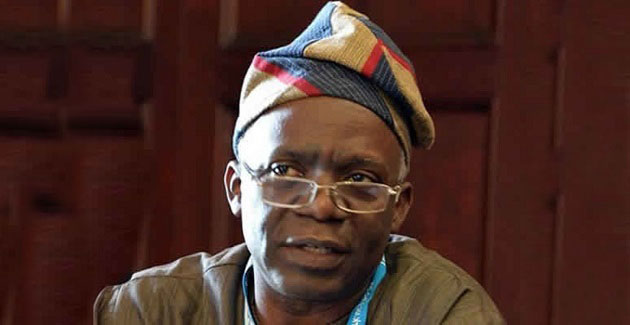Politics
Falana kicks against fines by judges on aggrieved citizens who challenge govt policies

Human rights lawyer, Femi Falana, has cautioned judges against imposing fines on public interest litigation, stating that they are unconstitutional.
In a statement on Sunday, Falana noted that no judge of the High Court has the power to fine litigants who have not been convicted for crimes.
Some High Court Judges have been reported to have imposed fines ranging from N5 million to N10 million on concerned citizens whose cases were struck out for want of locus standi.
According to him, the award of costs is a “renewed attack” on citizens who challenge illegal policies of government.
He said: “Specifically, the Fundamental Rights (Enforcement Procedure) Rules 2009 have enjoined judges to encourage public interest litigation in promoting the human rights of Nigerian people. Ex abundanti cautela, the doctrine of locus standi has been abolished in the area of human rights by Order III of the Fundamental Rights Enforcement Procedure Rules 2009,” he said.
“Since access to court has been guaranteed by sections 6 and 36 of the 1999 Constitution and article 7 of the African Charter on Human and Peoples Rights Act, it is illegal and unconstitutional to impose fines on aggrieved citizens who approach the courts to challenge the illegal official policies or unconstitutional legislation under the current democratic dispensation.
“As far as the law stands no judge has the power to order a litigant to pay costs outside the ambit of the Rules of the respective High Courts.”
“Even in the award of costs litigants and their counsel are given fair hearing by judges. Why then are fines imposed on litigants or lawyers without allowing them to make any representation?
“I wish to state that no judge is empowered by the Constitution, High Court Law or Rules of Court to impose fines of N5 million or N10 million on a litigant who has not been tried and convicted for committing a criminal offence in Nigeria,” the senior advocate of Nigeria (SAN) said.
“We are therefore compelled to draw the attention of our judges to the case of Fawehinmi v Akilu (1997) NWLR (Pt 65) 979 wherein the Supreme Court overruled the case of Abraham Adesanya v The President (1981) ANLR 1.
“Since the anachronistic doctrine has been set aside to pave way for public interest litigation our judges should desist from striking out or dismissing cases which are filed to challenge impunity of public officers in Nigeria.”
Join the conversation
Support Ripples Nigeria, hold up solutions journalism
Balanced, fearless journalism driven by data comes at huge financial costs.
As a media platform, we hold leadership accountable and will not trade the right to press freedom and free speech for a piece of cake.
If you like what we do, and are ready to uphold solutions journalism, kindly donate to the Ripples Nigeria cause.
Your support would help to ensure that citizens and institutions continue to have free access to credible and reliable information for societal development.




















